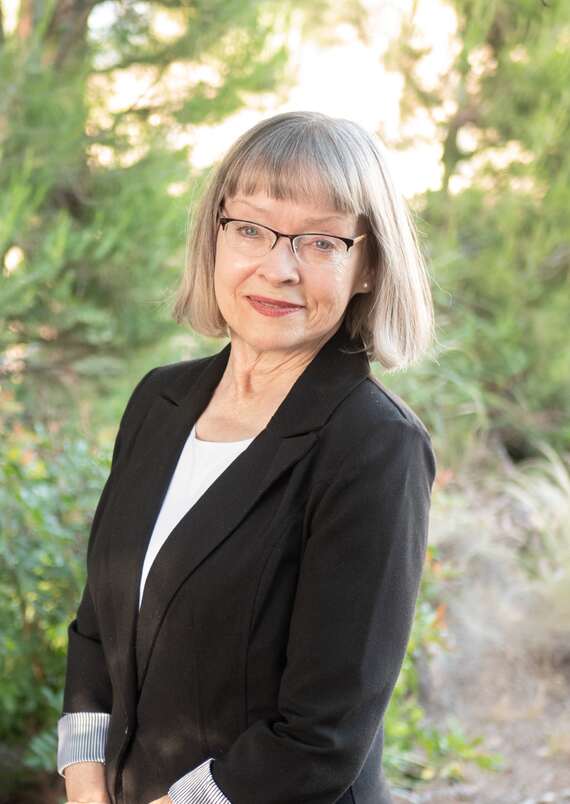 Judith Tschann is medievalist and Professor Emerita at the University of Redlands where she courses the History of the English Language, English literature, and Food in Literature, among others. She has a Ph.D. from Stony Brook University and has received numerous awards, including a National Endowment for the Humanities Fellowship and a Mortarboard Professor of the Year Award.
Judith Tschann is medievalist and Professor Emerita at the University of Redlands where she courses the History of the English Language, English literature, and Food in Literature, among others. She has a Ph.D. from Stony Brook University and has received numerous awards, including a National Endowment for the Humanities Fellowship and a Mortarboard Professor of the Year Award.
Judith Tschann grew up in the Midwest and now lives, writes, and enjoys meals in Redlands, California.
Her book Romaine Wasn’t Built in a Day: The Delightful History of Food Language was published by Little, Brown in 2023 under its Voracious imprint.
Ed Battistella: I really enjoyed Romaine Wasn’t Built in a Day. How did you get interested in food history and the history of food words?
Judith Tschann: As a kid from a family of eight, I loved our crowded, noisy dinner table. I was also a dictionary reader, flipping pages in that fat book and marking words that intrigued me. In graduate school I specialized in Old and Middle English literature and language, and as a professor teaching those subjects and various topics in linguistics, I amassed a huge pile of notes on interesting etymologies. During the pandemic, I pulled the notes on food words together into a book, and in some ways the pandemic inspired the work. I was reminded daily of missing the pleasure that comes from talking and eating with a big group around a table. Writing about food and language was not only a consolation but a source of joy.
EB: Romaine Wasn’t Built in a Day has a lot of great world and word history. How long did it take you to track all of these down? What was the hardest to pin down?
JT: The word history research started long ago and included (sometimes serendipitously) other research projects, including a study of French loan words in English as evidenced by a thirteenth-century trilingual manuscript. Many of the literary works I taught over the years, from Homer’s Odyssey to Chaucer’s Canterbury Tales, to Salmon Rushdie’s Midnight’s Children, gave me the chance to investigate the symbolic importance of food. I also read medieval recipes, cookbooks, and menus (some included porpoise and hedgehog) and many helpful historical studies like William Dalrymple’s The Anarchy: The Relentless Rise of the East India Company, and Judith Bennet’s Ale, Beer, and Brewsters in England. The final checking and tracking down of information took about a year and a half.
One time-consuming but enjoyable aspect of pursuing the history of food language was getting caught up in stories about (e.g.) the role of coffee in the invention of the webcam, and the influence of Joyce’s Finnegan’s Wake on physicist Gell-Mann’s choice of the word quark. Likewise, it was fun to get caught up in the many webs of words that spin out from the same source, like sass, sassy, saucy, salsa, salad, salami, sausage, and salary, all coming from Latin sal, “salt.”
Words that proved tricky include carrot, parsnip, celery, and parsley, because it was not always clear what exact vegetable a particular word referred to centuries ago.
EB: A lot of food terms seem to be related to the who or where of their origin, but they sometimes take mysterious turns, like the word cocktail. Can you tell us about that?
JT: The history of the word cocktail sounds like the kind of explanation you might hear when playing Fictionary. The word comes from the practice of docking a horse’s tail, cutting it so it stuck up like a cock’s tail. A carriage horse’s tail might be docked, but not a thoroughbred’s, so if a racehorse was found to have a cocktailed horse in its lineage, its pedigree was considered impure. By the time the word cocktail was applied to mixed drinks in the nineteenth century, it had lost the sense of impurity, suggesting only a mixture—to many people, a delicious, sophisticated mix of spirits and other ingredients like bitters, fruit juice or liqueur.
EB: There were so many surprising etymologies, but one that will stick with me is cabbage. I had never made the connection of cabbage and Latin caput, so now I’ll never think the cabbage the same way again. Have you ever called anyone a little cabbage?
JT: I think I did call my children mon petit chou (“my little cabbage”) on occasion when they were little. It’s amusing that cabbage is both a term of endearment and a slur (if you call someone a cabbagehead). I also like cabbage for a slightly embarrassing reason. The coffee cup I reach for, when I’ve put tushy on the cushy and fingers on the keyboard, has a charming scene on one side of a man and woman tending a cabbage patch, and a huge rooster with an impressive cock’s tail on the other side. I’ve wasted a lot of time analyzing this cup—the ways in which it depicts nature vs. culture (as if!). Like the lilies of the field, the rooster looks glorious and doesn’t toil. The man and woman, on the other hand (or side of the cup), with their tidy house and little fence in the background, have clearly worked hard cultivating those many neat rows of cabbage. To me the scene says, “Get to work,” “Weed that messy essay,” though often I only get up and peer longingly into the pantry.
EB: I was amazed at the number of food words that seemed related to smells–and farts in particular—and also to body metaphors. Do you have a couple of favorite examples?
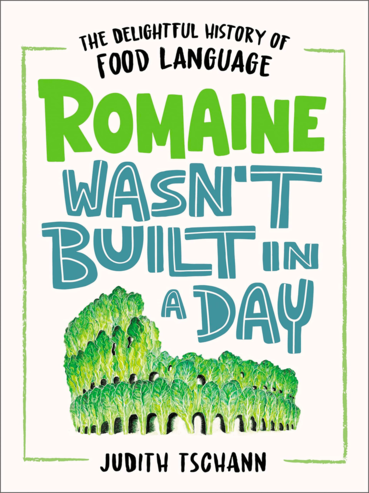 JT: Souffle, pumpernickel, partridge, and nuns’ farts come to mind, because they illustrate different aspects of lexical evolution or semantic change, as well as the difficulty of fully accounting for a word’s history and meaning. The Latin word flāre, “to blow,” gave us a many words, including flavor, flatulence, conflate, deflate, inflate, and (via French) souffle. Even if some members of this group of related words seem almost contradictory, it’s still possible to see how they could all come from a word meaning “to blow.” But with food terms like pumpernickel, partridge, and nuns’ farts, it’s not a matter of how words with very different meanings can derive from the same ancestor word, but rather a question of how some foods ever acquire a seemingly unappealing name, one that suggests yucky rather than yummy. The why and how of the name are often a matter of speculation.
JT: Souffle, pumpernickel, partridge, and nuns’ farts come to mind, because they illustrate different aspects of lexical evolution or semantic change, as well as the difficulty of fully accounting for a word’s history and meaning. The Latin word flāre, “to blow,” gave us a many words, including flavor, flatulence, conflate, deflate, inflate, and (via French) souffle. Even if some members of this group of related words seem almost contradictory, it’s still possible to see how they could all come from a word meaning “to blow.” But with food terms like pumpernickel, partridge, and nuns’ farts, it’s not a matter of how words with very different meanings can derive from the same ancestor word, but rather a question of how some foods ever acquire a seemingly unappealing name, one that suggests yucky rather than yummy. The why and how of the name are often a matter of speculation.
Pumpernickel comes from early German pumper, “to fart,” and “Nicholas,” a personal name that could also mean a “lout or bumpkin.” Perhaps this coarse-ground bread was called “farting Nicholas” because it was hard to digest, and when others got wind of the nonce name, it stuck, and eventually over many decades, the literal meaning faded away. A similar process probably occurred with partridge, from Greek perdesthai, “to fart,” apparently because the bird makes a whirring noise when startled. The history of “nuns’ farts” isn’t about literal meaning being forgotten but rather highlighted. English speakers have usually absorbed food words from other languages without translating those words (though Anglicizing goes on), from beef to taco, bibimbap, pho, jollof. But the fritter called “nuns’ farts” is a calque or loan translation of the French “pets de nonnes.” Perhaps “nuns’ farts” sells more fritters.
Thinking about food and body connections, I’m reminded of the first time I came upon the term pets de nonnes, in a 1966 book of recipes written by Henri de Toulouse-Lautrec and Maurice Joyant and illustrated by Toulouse-Lautrec. The pets de nonne recipe is printed on top of a dancer’s rear as she bends over and her tutu fans out, encircling the recipe. The drawing doesn’t sound subtle, but perhaps because the name of the recipe isn’t translated into English (editor’s decision?), it’s easy to overlook the visual pun, a backside version of “you are what you eat.”
Thinking about smell, food, and body connections, I’m reminded of a cluster of words pertaining to the nose. Speech sounds sometimes acquire semantic associations, and the “sn” sound of nose words can be mildly derogatory (sniffle, snivel, snort, snout, snooty, snot, snotty). Does “sn” seem like a sound-combination to avoid when naming a new food? Maybe, but not in the case of Snickers. What about positive associations between speech sounds and nose words? A vital bit of nose work is to pass along to the brain the information that something smells good. It’s an essential part of enjoying the taste of something. There doesn’t seem to be a long list of words indicating that a particular sound cluster is associated with good smells, though the oh ah mm of aroma comes close.
Sneeze, by the way, isn’t etymologically related to any of the words noted above. It derives from the Middle English word fnese, and may be the result of scribes misreading the letter “f” for “s” and then preferring the misreading, maybe because of the “sn” association with the nose.
EB: I see that you grew up in the Midwest. Are you a dinner person or a supper person?
JT: I started out a supper person in a small town and turned into a dinner person when we moved to the big city. I remember my parents discussing the words dinner, supper, and lunch when I was about five, and we were eating a meal at noon. This was ages ago, in a town small enough that my father could easily go home for the noon meal. My parents declared that farmers called a midday meal dinner and an evening meal supper. Like the farmers, we also called the evening meal supper, but like urbanites, we called the noon meal lunch. Later, when we moved to the Twin Cities, the word dinner became the more common word for the evening meal. That conversation made an impression on me. I suppose it reinforced the simple fact that different people use different names for the same thing, and it also made that fact more complicated. It mattered what words you used, because it said something about you, and others might judge you by it.
EB: Do you have another writing project in the works? I hope so.
JT: I have a novel that I hope may someday leap out of the drawer and onto the bookstore shelf, many short “food adjacent” articles, and a couple academic papers underway. One of them concerns ways of reading in the sixteenth century.
EB: Thanks for talking with us. Bon appétit.
JT: My pleasure, thank you!

 Follow
Follow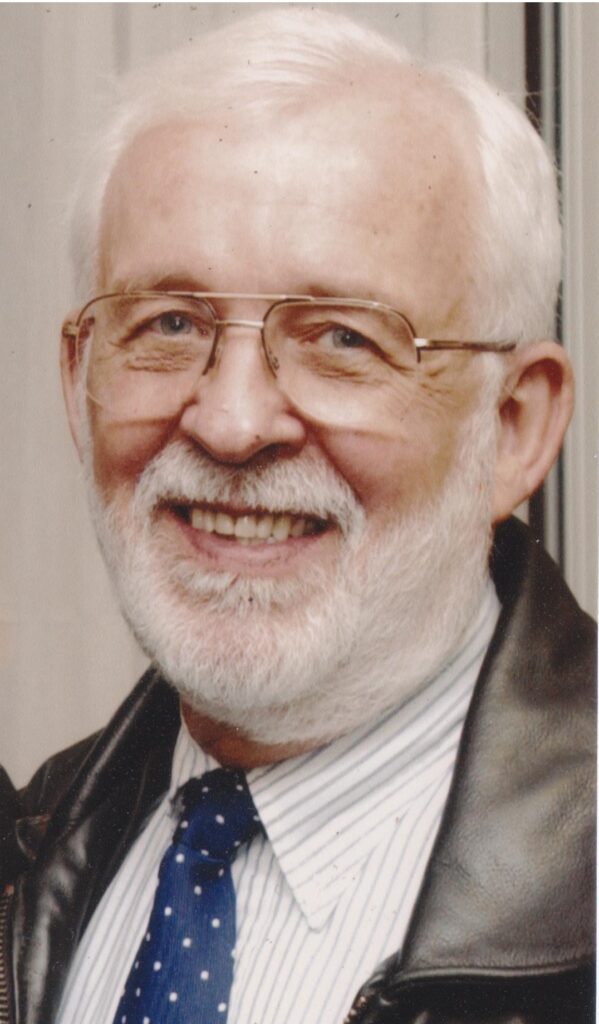 Bill Meulemans is an emeritus professor of political science at Southern Oregon University, where he taught from 1964-1992. A former Danforth Fellow, Fulbright scholar, and Army veteran, he has a PhD from the University of Idaho and also taught at Queen’s University in Belfast, and at Portland State University.
Bill Meulemans is an emeritus professor of political science at Southern Oregon University, where he taught from 1964-1992. A former Danforth Fellow, Fulbright scholar, and Army veteran, he has a PhD from the University of Idaho and also taught at Queen’s University in Belfast, and at Portland State University.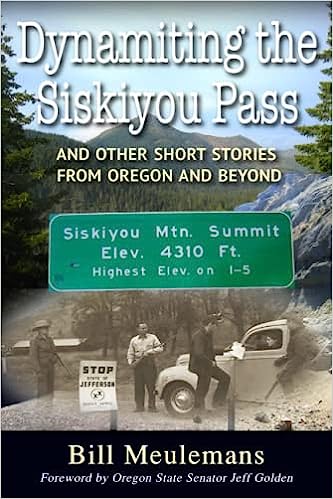 Bill Meulemans: The killing by the Ohio National Guard of four unarmed students in 1970 at Kent State University sent political shock waves to college campuses across the country. In response, students a Southern Oregon College in Ashland decided that the US Flag should fly on campus at half-mast the next day in commemoration of the those killed at Kent State. When word of this leaked out to the right-wing non-student population a determination was made by them to be ready to use any means available to raise the Flag to full-mast. Early the next morning a small fleet of pickup trucks with gunracks in the back windows showed up to raise the Flag despite the unarmed students who, by this time, were afraid for their lives. At this point it looked like another “Kent State” was in the offing. But when the Flag was attached to the rope, it was discovered that the pulley had been smashed, perhaps by a hammer. The students were relieved, the fleet of pickup trucks left, and everyone breathed a little easier. Several days later everyone on the campus found out that two unnamed college maintenance men had smashed the pully to “save us from ourselves.” These state workers became local heroes, demonstrating that maybe a bit of common sense had saved some lives that morning on a small college campus in Oregon.
Bill Meulemans: The killing by the Ohio National Guard of four unarmed students in 1970 at Kent State University sent political shock waves to college campuses across the country. In response, students a Southern Oregon College in Ashland decided that the US Flag should fly on campus at half-mast the next day in commemoration of the those killed at Kent State. When word of this leaked out to the right-wing non-student population a determination was made by them to be ready to use any means available to raise the Flag to full-mast. Early the next morning a small fleet of pickup trucks with gunracks in the back windows showed up to raise the Flag despite the unarmed students who, by this time, were afraid for their lives. At this point it looked like another “Kent State” was in the offing. But when the Flag was attached to the rope, it was discovered that the pulley had been smashed, perhaps by a hammer. The students were relieved, the fleet of pickup trucks left, and everyone breathed a little easier. Several days later everyone on the campus found out that two unnamed college maintenance men had smashed the pully to “save us from ourselves.” These state workers became local heroes, demonstrating that maybe a bit of common sense had saved some lives that morning on a small college campus in Oregon.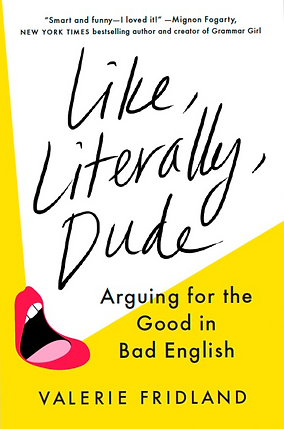 Like, Literally, Dude is one of those books that makes me wish I was still teaching, so I could assign it. Fridland, a professor of linguistics at the University of Nevada, Reno, brings together the research on just about all of the bits of usage that your misinformed, snooty relatives rant about: the use of uh and um, the use of like, vocal fry, saying workin’ rather than working, referring to any manner of dudes and, of course, the much-maligned figurative use of literally. I learned new things about each of these phenoms. What’s more, Fridland writes in an engaging and funny manner without stinting on linguistic accuracy. So before you opine about anyone’s bad English—or fret about your own—give Like, Literally Dude, a read.
Like, Literally, Dude is one of those books that makes me wish I was still teaching, so I could assign it. Fridland, a professor of linguistics at the University of Nevada, Reno, brings together the research on just about all of the bits of usage that your misinformed, snooty relatives rant about: the use of uh and um, the use of like, vocal fry, saying workin’ rather than working, referring to any manner of dudes and, of course, the much-maligned figurative use of literally. I learned new things about each of these phenoms. What’s more, Fridland writes in an engaging and funny manner without stinting on linguistic accuracy. So before you opine about anyone’s bad English—or fret about your own—give Like, Literally Dude, a read.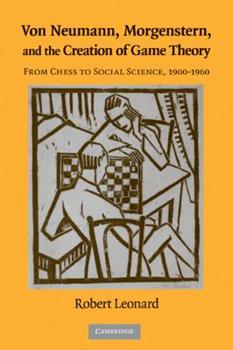 Von Neumann, Morgenstern, and the creation of game theory: from chess to social science, 1900–1960 by Robert Leonard,
Von Neumann, Morgenstern, and the creation of game theory: from chess to social science, 1900–1960 by Robert Leonard, 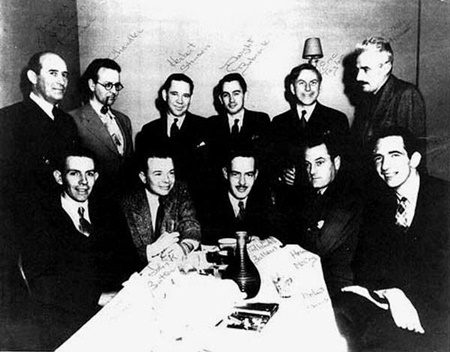


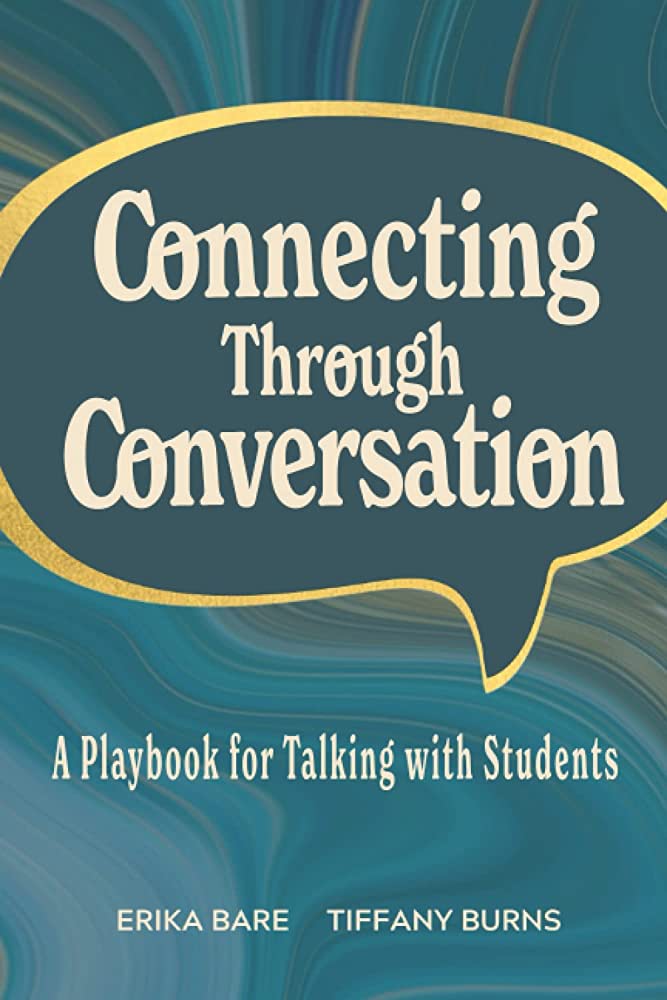 Erika Bare & Tiffany Burns: We talk a lot about how important it is to let our students know how much we care about them. This becomes all the more critical when a student has demonstrated unexpected behaviors. It usually sounds something like, “I know you are a really good kid, sometimes even really good kids make mistakes.” This demonstrates to the student that you have separated what they did from who they are, and shows them that you care about them. Depending on the student’s age or the behavior you are addressing, this can take many forms. For an older student who has cheated on an assignment, you might say, “I have always known you as a student who works hard to uphold our value of integrity. Sometimes even those of us who consistently act with integrity slip up. The most important thing to do when that happens is to take responsibility.” Again the idea is to demonstrate to both the student and yourself that whatever the unexpected behavior was, it is something they did, not who they are.
Erika Bare & Tiffany Burns: We talk a lot about how important it is to let our students know how much we care about them. This becomes all the more critical when a student has demonstrated unexpected behaviors. It usually sounds something like, “I know you are a really good kid, sometimes even really good kids make mistakes.” This demonstrates to the student that you have separated what they did from who they are, and shows them that you care about them. Depending on the student’s age or the behavior you are addressing, this can take many forms. For an older student who has cheated on an assignment, you might say, “I have always known you as a student who works hard to uphold our value of integrity. Sometimes even those of us who consistently act with integrity slip up. The most important thing to do when that happens is to take responsibility.” Again the idea is to demonstrate to both the student and yourself that whatever the unexpected behavior was, it is something they did, not who they are.